Top 5 Most Famous 5-Star Hotels in Da Lat in 2025
Vietnam is a country rich in culture and diversity, where traditional festivals play an important role in the spiritual life of its people.
Below is a list of the most famous festivals in Vietnam that international travelers should not miss. Join Phu Minh Quang Travel to discover these unique cultural experiences on your journeys.
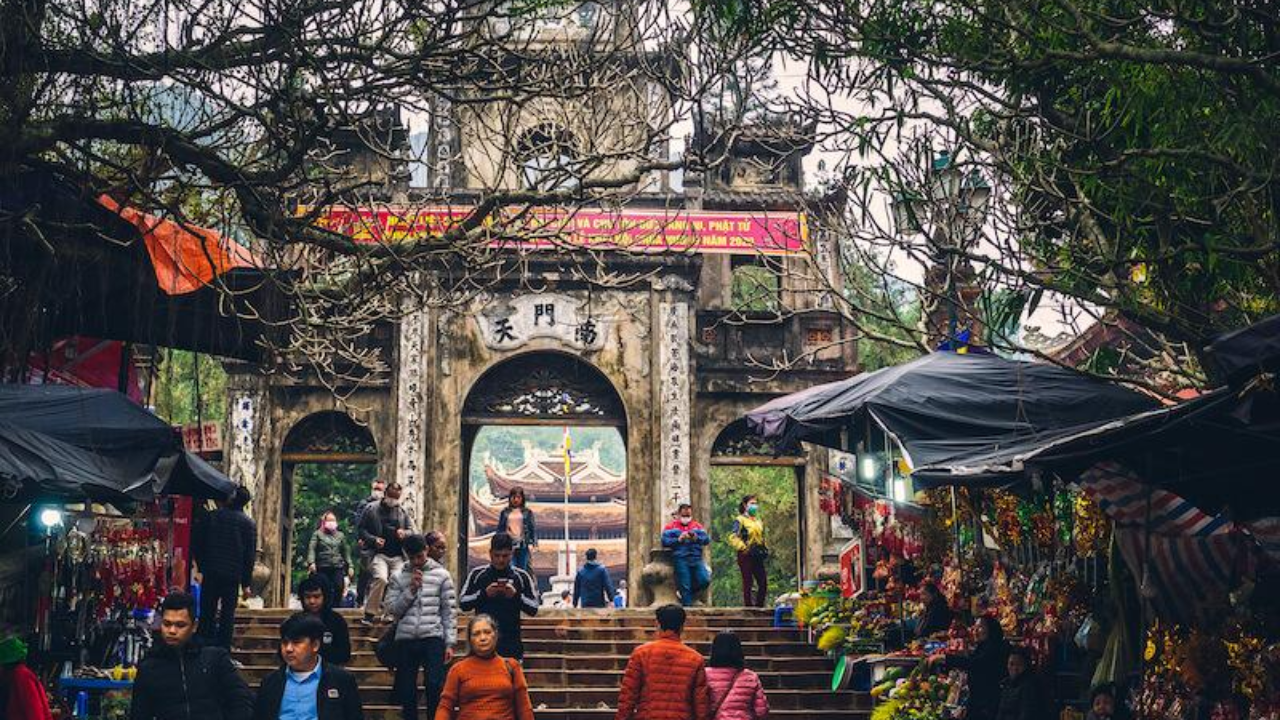
The Huong Pagoda Festival, held from the first to the third lunar month, is one of the largest and most famous festivals in Vietnam. Located deep in the My Luong mountain range in My Duc District, Hanoi, Huong Pagoda attracts millions of pilgrims each year seeking blessings of luck, health, and peace.
In addition to offering incense and prayers, visitors can also enjoy boat rides along the Yen River, hike up to Huong Tich Cave, and admire the stunning natural scenery. This festival is a perfect blend of spiritual devotion and natural beauty.
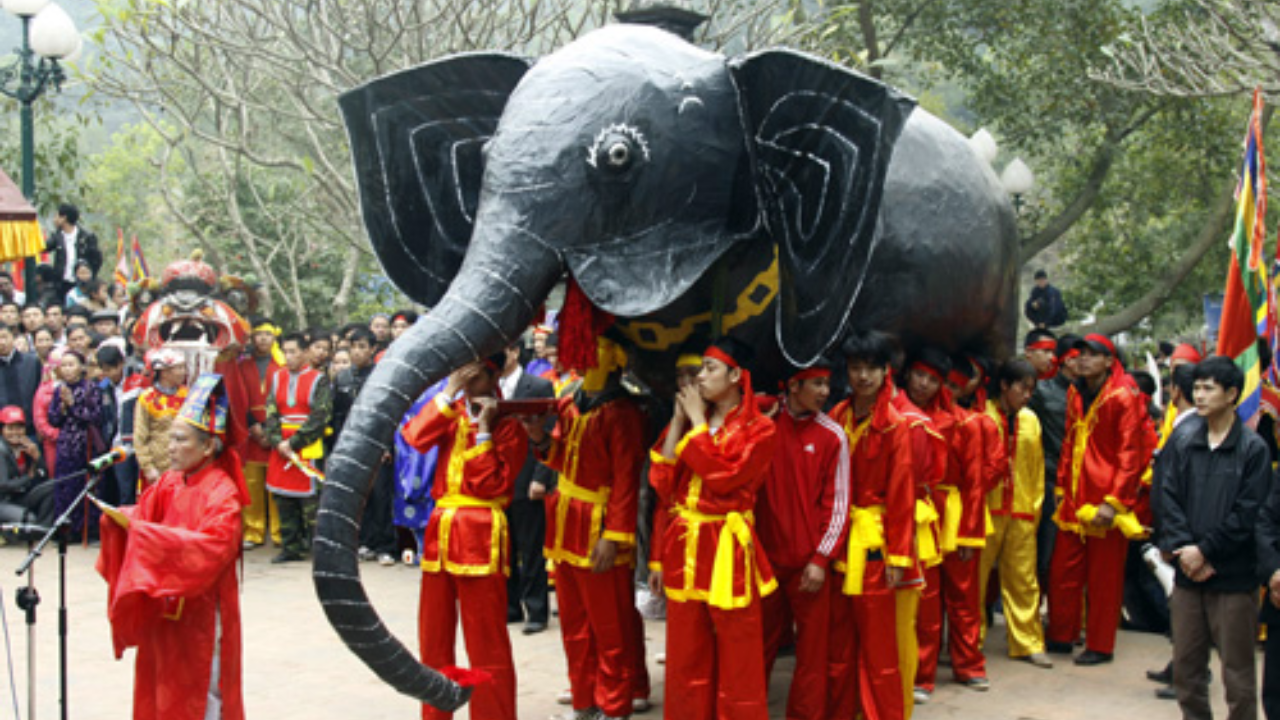
Giong Festival, celebrated in the fourth lunar month at Giong Temple (Soc Son, Hanoi), honors the legendary hero Saint Giong. It is one of Vietnam’s most traditional festivals, deeply rooted in folk culture.
The festival includes solemn rituals, folk games such as palanquin processions, lion dances, and ceremonial drum performances. A unique feature is the re-enactment of ancient warriors gathering, symbolizing Saint Giong's legendary flight into the sky on a horse.
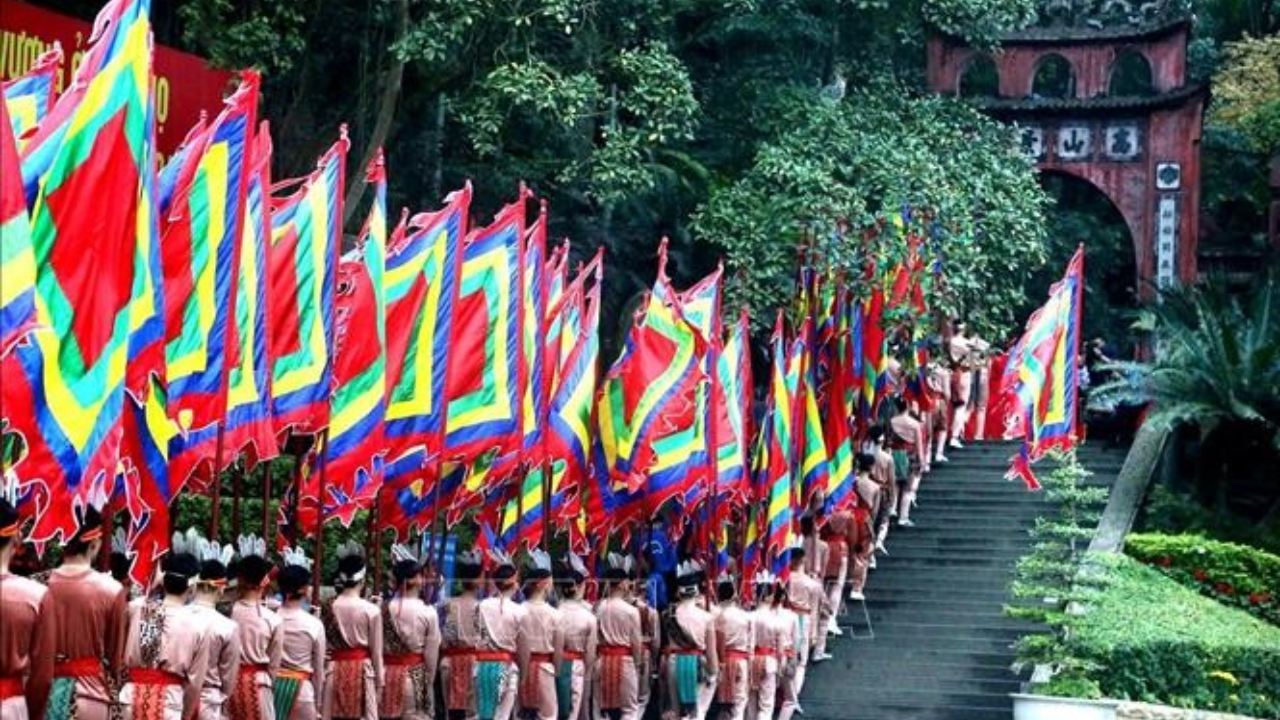
The Hung Kings Temple Festival commemorates the founders of the Vietnamese nation. Held on the 10th day of the third lunar month at Hung Temple in Phu Tho, it draws millions of participants from across the country.
More than just a religious event, it is a moment for Vietnamese people to honor their roots and reflect on national history and traditions. Activities include incense offering, palanquin processions, and folk games such as tug of war and boat races.
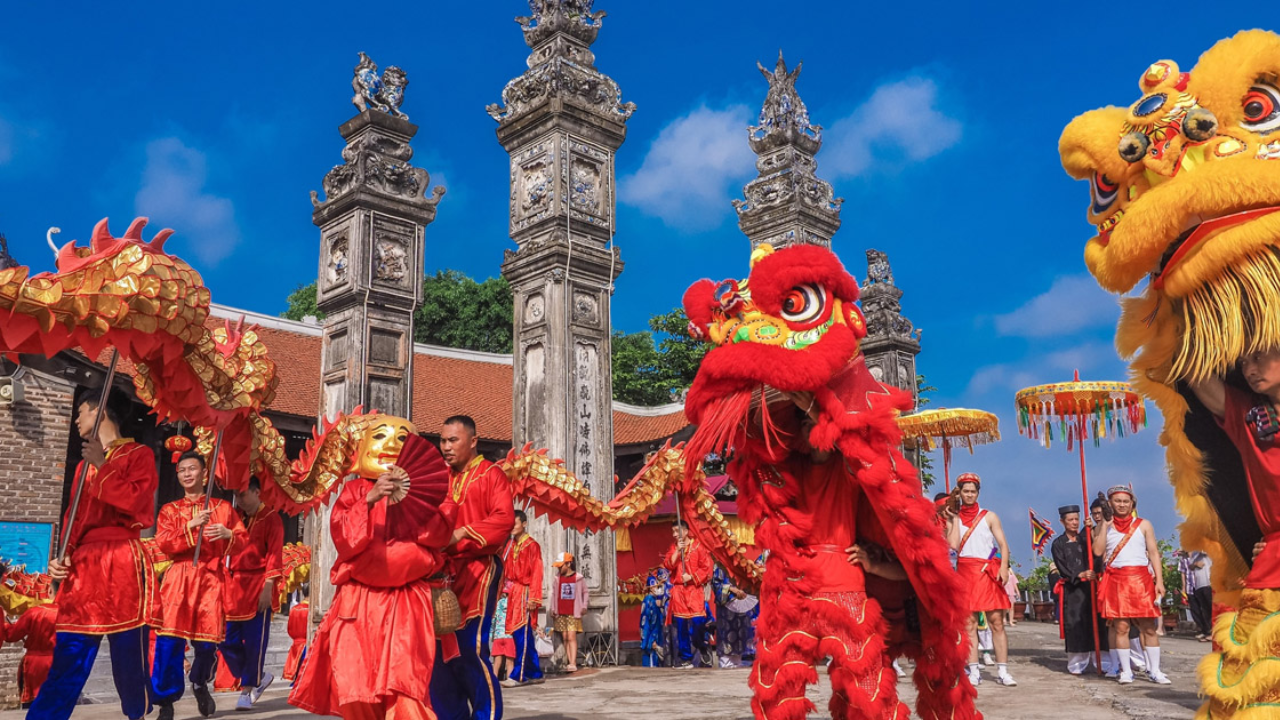
Tet, or the Lunar New Year, is the most important festival of the year in Vietnam. It begins on the first day of the lunar calendar and usually lasts until the end of the first lunar month. This is a time for family reunions, paying respect to ancestors, and wishing for a prosperous new year.
Families prepare traditional offerings and festive meals with dishes such as banh chung, banh tet, and braised pork with eggs. Children eagerly receive lucky money in red envelopes. Festivities include lion dances, fireworks, and vibrant street celebrations.
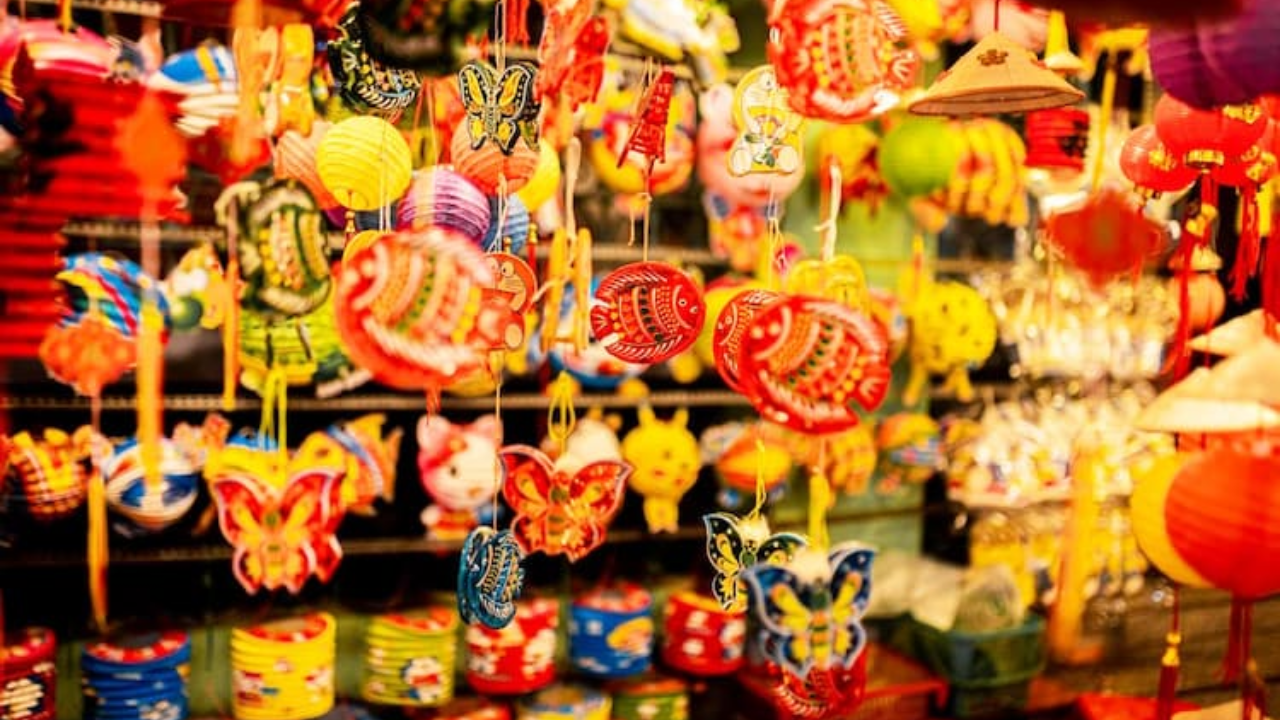
The Mid-Autumn Festival, celebrated on the 15th day of the eighth lunar month, is a special occasion for children.
Children participate in lantern parades, enjoy mooncakes, and join in festive activities. Traditional mooncakes such as sticky rice and baked varieties are essential during this celebration. It is a joyful time for families to come together and enjoy each other's company.
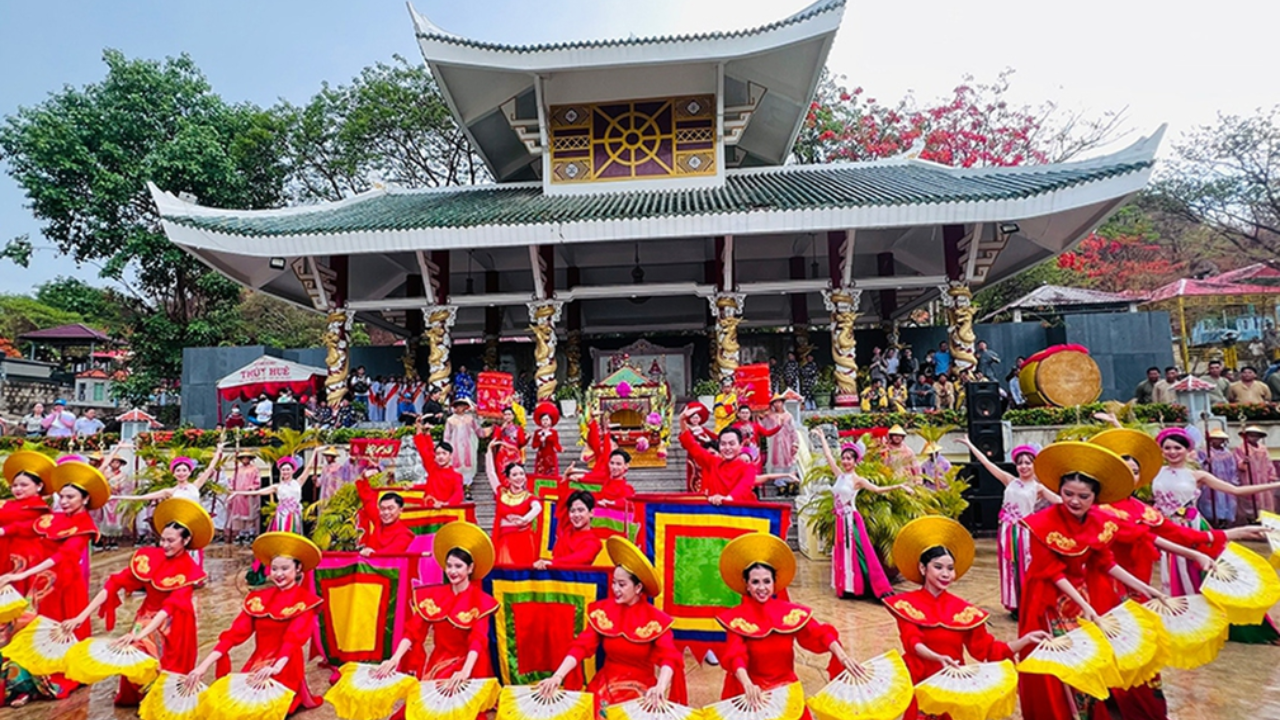
Held in the fourth lunar month at Ba Chua Xu Temple on Sam Mountain, An Giang, this is one of the biggest religious festivals in southern Vietnam, attracting millions of pilgrims.
The festival expresses gratitude to Lady Chua Xu and seeks blessings for good harvests and national peace. Ceremonial offerings, palanquin processions, and traditional performances take place in a sacred and solemn atmosphere.
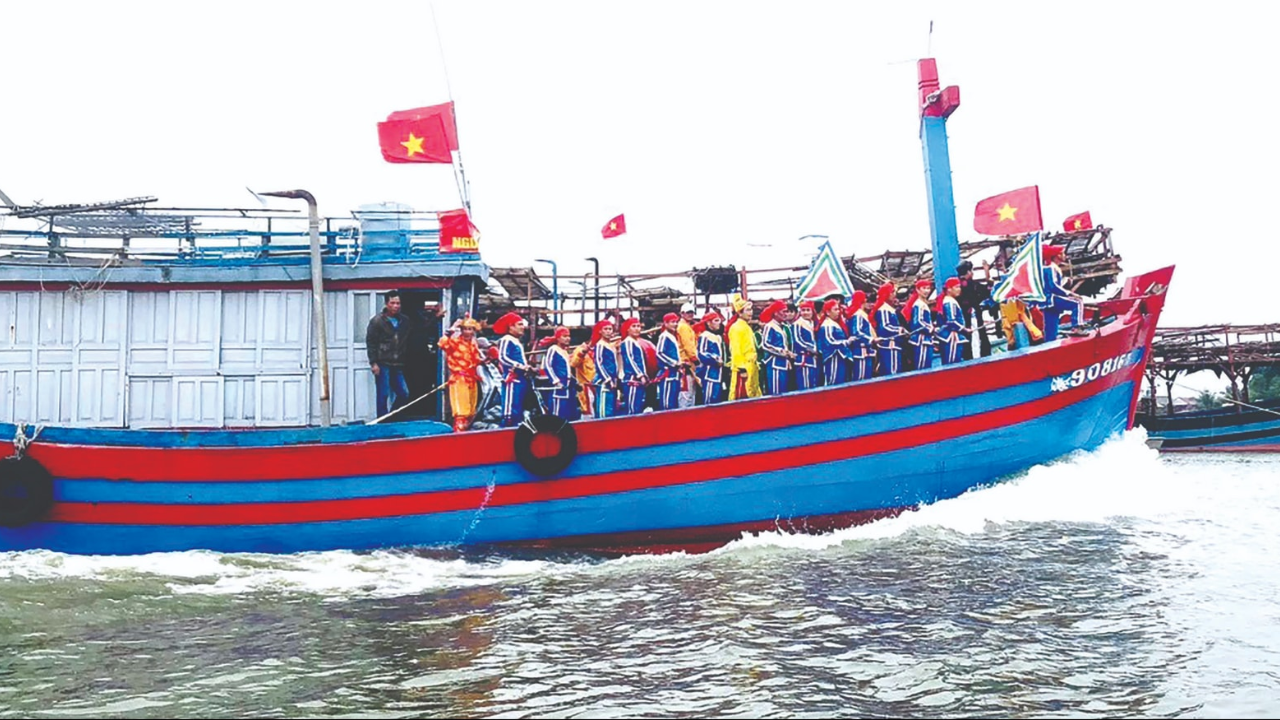
The Cau Ngu Festival is a coastal festival held by fishermen in central Vietnam at the beginning of the year. Its purpose is to pray for safety, abundant catches, and calm seas.
During the festival, fishermen conduct sea deity worship ceremonies, boat races, fishing competitions, and traditional games. It reflects the strong connection between people and nature, especially for those whose lives depend on the sea..
Vietnam boasts a wealth of unique traditional festivals, each carrying its own stories, legends, and long standing customs. These festivals not only preserve and promote national cultural values but also offer great opportunities for international visitors to experience the richness of Vietnamese heritage.
If you have the chance, don’t miss out on these vibrant celebrations with Phu Minh Quang Travel, your companion in discovering the authentic and colorful culture of Vietnam.
Maybe you are interested
